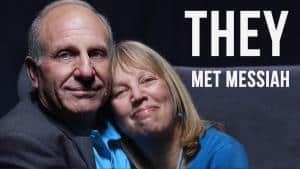Torah Portion for week 48: Deuteronomy 16:18 – 21:9
שֹׁפְטִים
Shoftim (Judges)
In John 1, representatives of the Sanhedrin were sent from Jerusalem to investigate John, the son of Zechariah, who was preaching the coming kingdom of God and immersing large numbers of Jewish penitents in the Jordan River. Intent on discovering John’s claim to spiritual authority (John 1:19, 22, 25), the delegation asked him directly, “‘Who are you?’ He confessed, and did not deny, but confessed, ‘I am not the Messiah.’[1] And they asked him, ‘What then? Are you Elijah?’ He said, ‘I am not.’ ‘Are you the Prophet?’ And he answered, ‘No’” (John 1:19b-21).
Their query reflects the end-time understandings of the Jewish people in the first century, based on the prophetic writings in the Tanakh (the Old Testament). Naturally, the coming of Messiah was intimately linked with the establishment of God’s kingdom on earth and the Olam haBa, the Age to Come. Because the prophet Malachi had predicted the return of Elijah before “the great and terrible[2] day of the Lord” (Mal 4:5), this was a reasonable line of questioning.
But when John had denied being either of these two eschatological figures, the delegates asked, “Are you the Prophet?” (emphasis added) – not just a prophet. Clearly they had someone very specific in mind – another particular individual, like the Messiah or Elijah, who was expected to appear in the end-time. The basis for their expectation is found in this week’s Torah portion.
This Torah portion describes a number of civil authorities established by God for the smooth functioning of society: local citizen judges (16:18 – 17:7); a high court composed of Levitical priests presided over by a judge (17:8-13); and the institution of kingship (17:14-20). In this context, and in contrast to the soothsayers of pagan societies (18:9-14), God also promised to raise up prophets who, like Moses – the ideal prophet – would receive divine revelation for the guidance of the people (18:15-19). Moses says, “And the LORD said to me, ‘. . . I will raise up for them a prophet like you from among their brothers. And I will put my words in his mouth, and he shall speak to them all that I command him. And whoever will not listen to my words that he shall speak in my name, I myself will require it of him’” (Deut 18:17-19).
On the one hand, this promise provided the basis for the prophetic office which was manifested throughout Israel’s history with men like Elijah and Jeremiah and women like Deborah and Huldah (2 Kg 22:14). Prophets were to be native Israelites who, like Moses, would function as intermediaries between God and the people, declaring his word as needed (cf. 18:15-16). Joshua, Moses’ immediate successor who was endowed with the same spirit, was clearly the first to fulfill this role and, as God required, “the people of Israel obeyed him and did as the LORD had commanded Moses” (Deut 34:9).
Nevertheless, Deuteronomy closes with an acknowledgement that the promise of a prophet like Moses demanded more than just a functional equivalent. Even Joshua himself did not fit the bill entirely. Taking God’s promise quite literally, the final verses of Deuteronomy expected a one-to-one match, one who would truly be “like Moses” both in his unique relationship with God and in his unique manifestation of God’s miraculous power. In Deuteronomy 34 we read,
And there has not arisen a prophet since in Israel like Moses, whom the LORD knew face to face; none like him for all the signs and the wonders that the LORD sent him to do in the land of Egypt, to Pharaoh and to all his servants and to all his land, and for all the mighty power and all the great deeds of terror that Moses did in the sight of all Israel. (Deut 34:10-12)
Moses set the bar so high that none of the biblical prophets even came close. Each was just a partial foreshadowing of One who, “like Moses,” was expected to redeem Israel from her oppressors and to lead her into the ultimate “promised land,” the Kingdom of God.
After four hundred years of prophetic silence, the dramatic appearance of John the Baptist immediately raised the question that was on all Israel’s mind. But he humbly redirected their attention to the greater One, the Lord, the Son of God, whom John had been sent to reveal to Israel (John 1:23, 26-34). And when Yeshua came proclaiming the word of the Lord with absolute authority and working miracles of power, the people drew the inescapable conclusion: “This is indeed the Prophet who is to come into the world!” (John 6:14; 7:40)
[1] ESV reads “Christ.”
[2] ESV reads “awesome.”






















